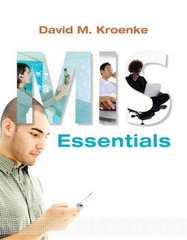Question
Harry recently took over management of his family's textile company. For more than thirty years his father ran the company with an iron hand. Workers
Harry recently took over management of his family's textile company. For more than thirty years his father ran the company with an iron hand. Workers of different nationalities, mostly Asian immigrants, were hired to reduce the chance of unionization. Wages continue to be paid on a piecework basisthat is, for actual sewing completed. Overall, workers' earnings average $1.50 per hour over the federal minimum wage.
Schooled in Theory Y, Harry is troubled by what he sees. The sewing jobs are repetitive and boring. Little interaction occurs between the small cadre of white male executives and the predominantly female Asian line workers. Mid-level management positions are few, because employee output is so easily measured.
Reviewing the financial statements, Harry learns that the company has been modestly successful over the years. Return on investment is slightly above industry standards. Stiff international competition makes Harry hesitant to raise wages or alter "the system."
Prompt
- Should Harry change the company's management philosophy and structure? If so, how?
- What risks does Harry run if he does not make any changes?
- As you reflect on this chapter and your past experience(s) with employer/employee relations, what conclusions can you draw?
- Describe at least one specific way in which you can apply what you have learned about employer/employee relations
Step by Step Solution
There are 3 Steps involved in it
Step: 1

Get Instant Access to Expert-Tailored Solutions
See step-by-step solutions with expert insights and AI powered tools for academic success
Step: 2

Step: 3

Ace Your Homework with AI
Get the answers you need in no time with our AI-driven, step-by-step assistance
Get Started


